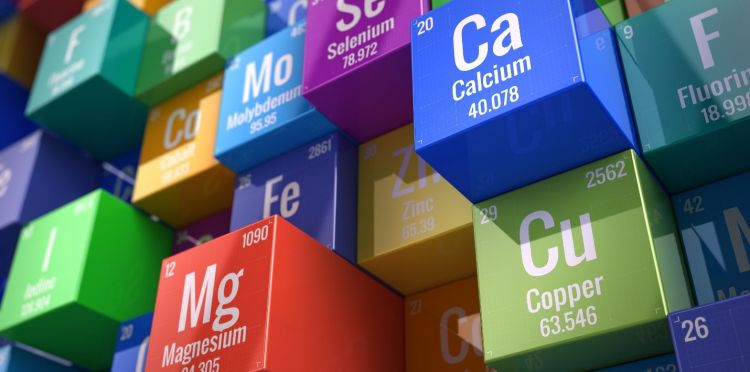
As our food becomes increasingly processed, it is difficult to guarantee that you are getting all of the essential vitamins and minerals from your diet. Studies show that the following nutrients are commonly low in the average American diet, which may be triggering health issues or diminishing quality of life.
Fiber:
At a daily recommended amount of 25g to 30g per day for adults, most people are not getting the daily recommended amount of fiber. Insoluble fiber helps to regulate the digestive system and soluble fiber helps to lower LDL (the “bad” cholesterol) and reduce the risk of heart disease. You can take a fiber supplement or increase the amount of whole grains and raw fruits and vegetables in your diet. The more wholesome your food is, the better it is for you.
Vitamin B12:
If you’re feeling fatigued it could be due to low levels of B12. This vitamin works to maintain the central nervous system and cardiovascular system. B12 also helps to balance mood and prevent symptoms of stress. The best sources of B12 are animal proteins. If you are vegetarian or vegan, it may be a good idea to take a B12 supplement.
Potassium:
Low levels of potassium can put you at risk for health issues such as kidney stones or osteoporosis. Potassium is known to help regulate blood pressure, maintain a balance within the nervous system, and keep your muscles performing at their best. A great way to add extra potassium to your diet is through bananas or yogurt.
Vitamin E:
Vitamin E is essential to maintain a healthy immune system and eye health. As a powerful antioxidant, it can work to fight against free radical damage to your cells caused by pollution and other environmental factors. Vitamin E can be added to your diet through foods with healthy fats such as seeds or avocado.
Calcium:
We all know calcium is good for our bones, but did you know it helps with weight loss too? Calcium has been known to reduce blood pressure and increase heart health as well. Our bodies do not naturally produce calcium so look to dairy products and dark, leafy greens to increase your daily intake of calcium.
Vitamin C:
Another free-radical fighting element is Vitamin C. An increased intake of Vitamin C during times of illness is recommended. It gives the immune system an extra boost. The most commonly used sources of Vitamin C are citrus fruits and juices. However Vitamin C may also be found in red peppers and potatoes.
Iron:
A protein building block, iron is crucial to growth and development, especially in children. It also works to provide oxygen for cells to transport to the rest of the body. A common illness that occurs from iron deficiency is anemia which can cause fatigue or muscle weakness. The best sources of iron are spinach, beans and red meat.
Magnesium:
As many as 80% of Americans have some level of magnesium deficiency. An essential nutrient, magnesium is responsible for energy, bones and teeth, and detoxification. Negative effects of magnesium deficiency could include abnormal heart rhythms or fatigue and weakness. Magnesium can be found in seeds and dark leafy vegetables.
If you are feeling weak, tired, or ill but are not sure why, you could be missing some of these important vitamins and minerals. Make sure your diet is full of raw, whole foods packed with what you need to survive. Avoid processed foods where possible. The first step to a healthy lifestyle is knowing what you need, and making sure you get it!
Sources:
- http://www.webmd.com/diet/7-nutrients-your-diet-may-be-missing#1
- http://www.everydayhealth.com/news/nutrients-you-may-lacking/
- http://www.huffingtonpost.com/entry/nutrient-deficiency-vitamin-b-iron_us_56059091e4b0dd8503076ebc
- http://greatist.com/health/missed-nutrients-whole-foods
- http://healthywildandfree.com/8-of-the-most-common-nutritional-deficiencies-in-america